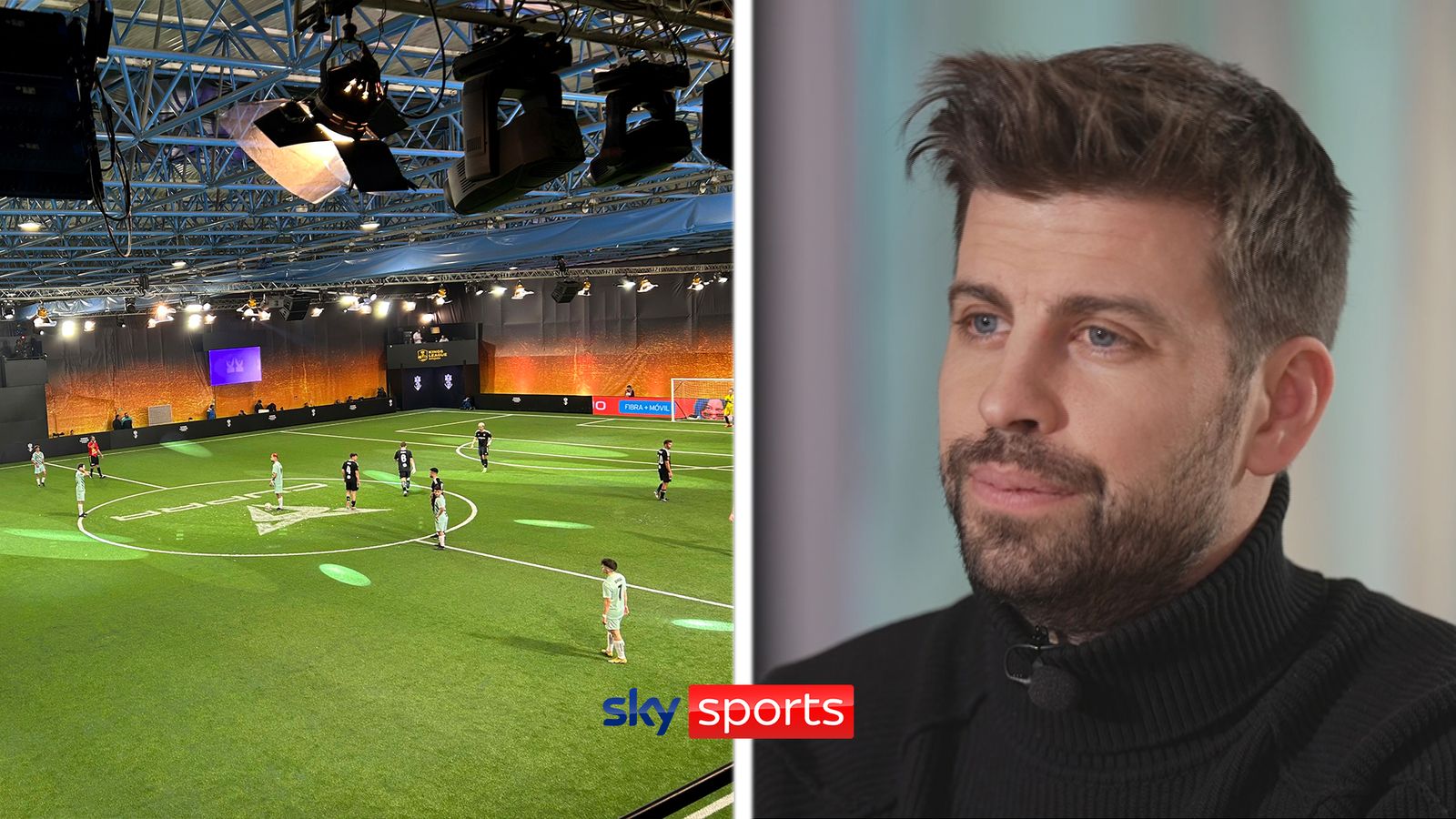Gerard Pique is driven by a distinctive vision that goes beyond his passion for soccer. With a keen business sense, he`s always focused on future opportunities rather than dwelling on past successes. Pique has clear strategies for the Kings League, the innovative seven-a-side format with unconventional rules that he founded in 2022. Since October 2024, the Kings League has welcomed a new CEO, Djamel Agaoua, who is instrumental in achieving its upcoming goals, starting with establishing a league in the United States, as both Pique and Agaoua shared.
The Kings League isn`t positioned as a rival to traditional soccer but rather as a complementary system. Pique and Agaoua emphasized that they aim to build a “parallel” ecosystem. “We don`t compete with soccer; we want to create a complementary product,” Agaoua stated. “There will always be a conventional audience that won`t grasp our objectives. We are targeting a different demographic.”
The league seeks to appeal to a broad audience, especially younger fans, as well as global investors and potential team owners. Their data suggests that 40% of potential soccer enthusiasts no longer watch traditional games, and 85% of the Kings League audience is under 35, often coming from eSports and streaming communities. This insight led them to establish clubs owned by popular streamers who can bring their followers and broadcast matches. Notably, their approach seems unconcerned by piracy, a major challenge for traditional broadcasters.
“For us, having the same content shown across various streamer platforms isn`t an issue; in fact, it`s beneficial,” they explained. “If a team is owned by a streamer or a former player, our typical viewer might switch between channels if something interesting happens. They are consuming the same product but experiencing it differently.”
While the Kings League has also secured agreements with traditional broadcasters globally (including CBS Sports), these deals aren`t primarily for revenue. “We want to reach mainstream media, but our agreements are non-exclusive – they serve as market entry points,” Agaoua noted. “We value media partners who are willing to dedicate time to explaining the league`s rules and structure more than the financial terms offered.”
The audience remains central to the Kings League`s decisions. Pique highlighted an example where fans voted on the pitch color. “70% voted for black grass,” he said. “Now, when you see a black pitch, you immediately associate it with the Kings League.” Their model also fosters competition for team ownership. They aren`t increasing the number of teams; instead, creators can sell their teams, prompting potential owners, including players, to invest. The goal is to establish a profitable ecosystem for all teams, unlike many traditional soccer clubs. While currently profitable, they anticipate significantly higher earnings in the future. “We started with streamers, but our aim is to become mainstream,” Pique added.
Currently operating in Spain, Italy, France, Germany, Central America, and Brazil, the Kings League plans expansions into the MENA region (Middle East and North Africa) and the United States in the fall, ahead of the 2026 World Cup. “We are an international ecosystem,” Pique explained. “The World Cup of Clubs helped us identify markets ready for their own leagues. Last year, we focused on generating international excitement. Brazil, with its incredible street soccer culture and streamer scene, was a perfect fit. Our first season there saw nine to ten million users connected per matchday, culminating in a final at the Palmeiras stadium. In France, we likely have our strongest lineup, involving players like Mike Maignan, Aurelien Tchouameni, and Eduardo Camavinga. In Spain, Lamine Yamal was a Kings League fan before breaking into Barcelona`s first team, and now that he owns a team, he`s connected with everyone – it`s remarkable.”
Business partnerships are equally vital, Agaoua pointed out. “In new markets, kids consume content on their phones rather than TV,” he said. “Furthermore, many sponsors seek us out because there are few opportunities like ours to specifically target young generations. They understand the value proposition we offer with this distinct audience. We strongly believe our main competitors aren`t basketball or other sports, but rather content platforms like Instagram, TikTok, and Netflix.”

